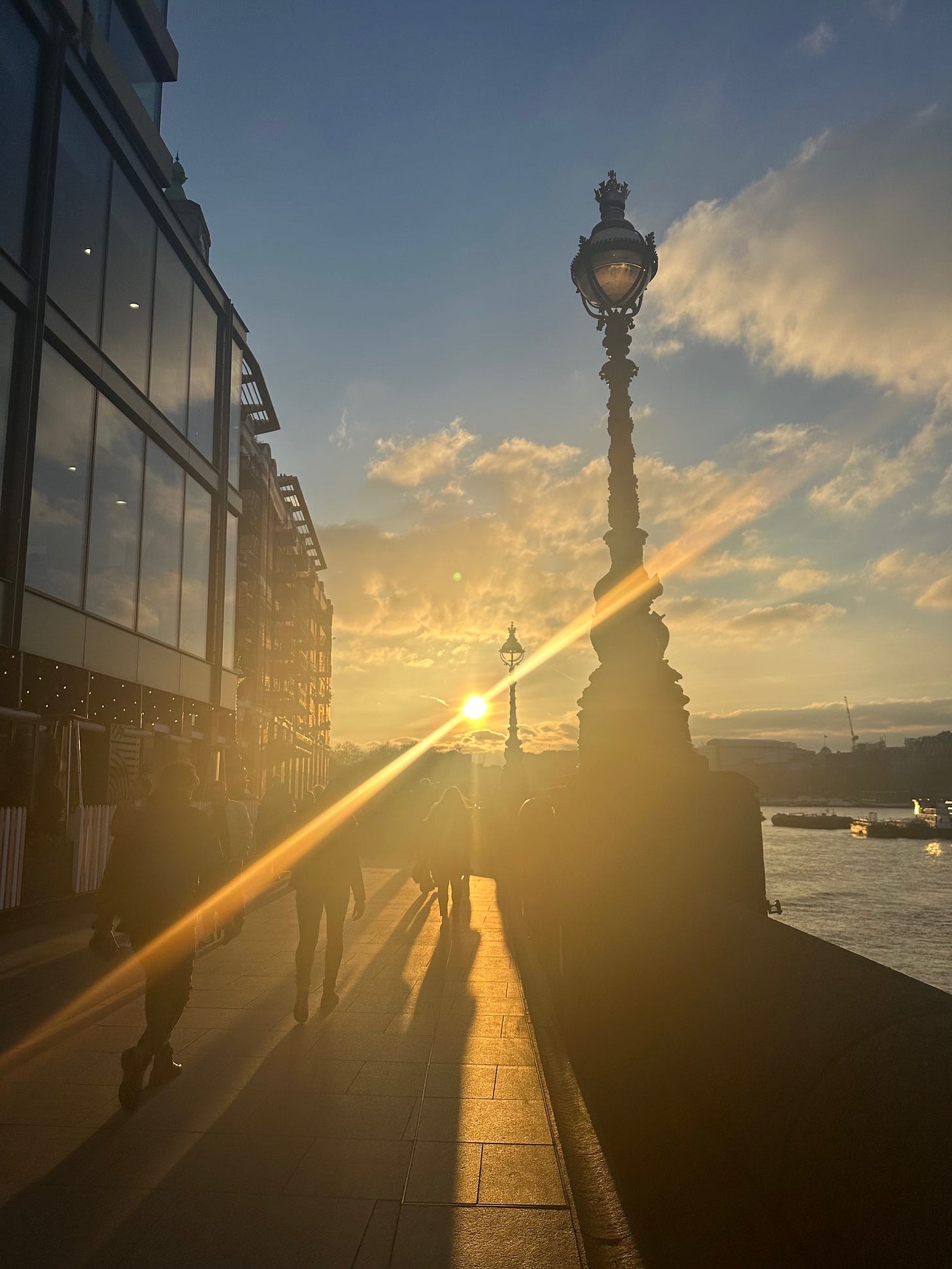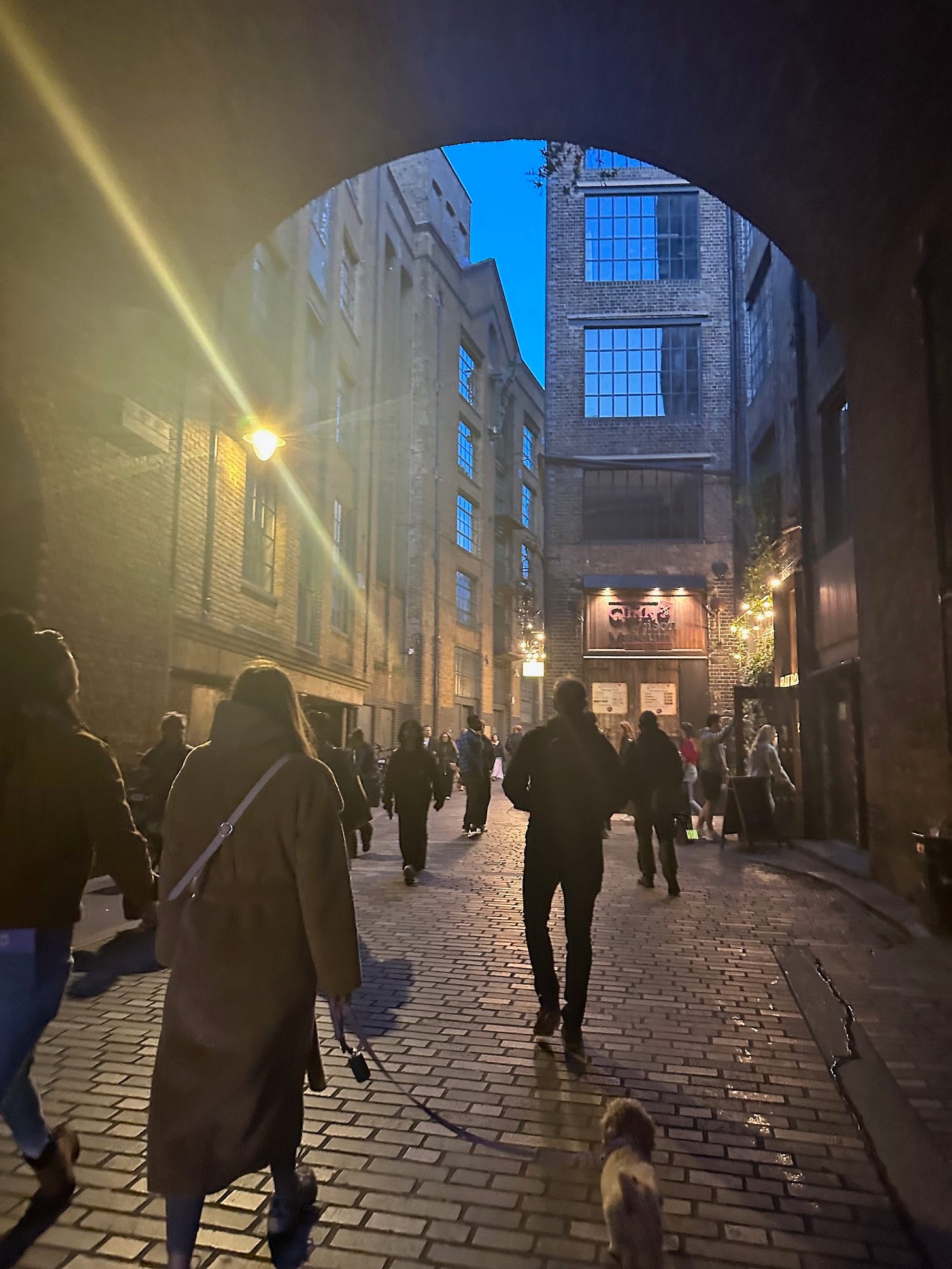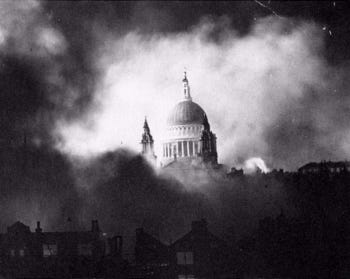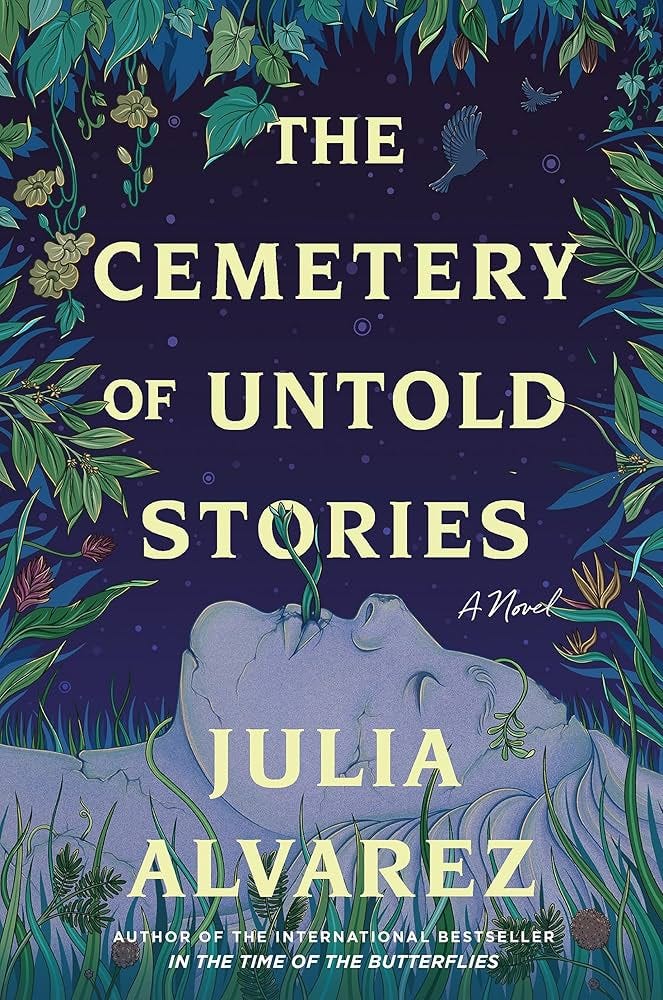Two weeks ago, I spent some time in London teaching. One night I got semi-lost in town after viewing art at the Tate Modern in their last hour of evening operation.
My phone died. The tech death was sort of a blessing, except for the fact that I have no sense of direction. (I often check with my spatial intuition and choose the opposite, because that’s how little I trust my navigational awareness).
But the light was golden, people were digging for treasure along the banks of the Thames, and I thought: I can’t get lost if I just walk alongside the river.
Note to reader: I could get lost.
Eventually, I realized that finding a Black Cab was my best bet, and I wandered with that objective in mind. I passed under ancient archways, and lingered by restaurants with that perfect evening lighting, laughter and animated conversation trickling from the front door. The kind that stabs you in your heart a little and makes you wish you had just the right people with you and a bottle of wine.
History feels heavy to me in London, and as I walked what felt like miles I felt my imagination wandering to those wartime narratives that somehow feel dangerously close, and increasingly forgotten, as we flirt with fascism, escalating conflict, and the eradication of human rights.
Whenever I inch that narrative direction, I remember being struck by something the brilliant novelist Rebecca Makkai wrote before the 2024 election about World War II fantasy:
I have this huge pet peeve about the glut of romanticized WWII novels that seem to exist only to allow you to fantasize that YOU would have done the right thing. Most people didn’t. Most people folded like a house of cards. If Trump wins, that’s what will happen: capitulation everywhere—from people as unexpected as Bezos. If you want to know what you would have done in 1933, it’s whatever you’re doing right now. Let’s hope we don’t all get the chance to find out what we would have done in 1943.
This idea that we would do the “right” thing, this fantasy of our better behavior under pressure. Where is it? And how prescient was Rebecca about capitulation?
I eventually found a Black Cab driver. He told me how much he loved his profession, how he studied London’s streets for years only to feel discarded in the face of Uber and self-driving cars. He turned a 360 on a busy London street to show me a stone and one of the dragons of London. He showed me the tiniest pub, and noted how St. Pauls had survived the Blitz. “A bloody miracle,” he said. “And British will.”
*
I think, in our hearts, what we like to fantasize about is our own courage.
It is a trait I have been nervously scanning our leaders and institutions for, only recently seeing it in Booker’s epic speech, the New Yorker’s interview with Wesleyan’s president, Michael Roth, and in Harvard’s defiant move (thank God). I’m also cheering on Maine’s governor, Janet Mills, for going up bravely against Trump, and saying that she is “unfazed by loud men.”
I find myself interested in independent and brave thinking - not just with party lines - but that which centers public service and not self. Not just a feel of correctness in search of applause, but correctness in search of justice and outcome.
Courage is a trait we now call upon in this era when talking publicly about the need to support science, protect the autonomy of universities, save species, save wild places, protect the rights of women, maintain basic human rights, and fight the upcoming environmental deregulation push.
As many of you are writers who care about place, I want to recommend the practice of localized storytelling. Find your local angle and start writing - even a paragraph to the editor of your local paper.
Political strategist James Carville just wrote in the NYT that we must “make the message local.” He writes:
It’s important that as a party we understand this is not about us and that the Democratic brand is tarnished at this given moment. And instead, take our prints off of the message as much as possible. This is not about us going on CNN or taking to X to complain about the president.
The Democratic Party must now take local stories and project them where they matter most.
We can - and must - start talking often and loudly about the local places we love, how regulations improve lives where we live, how to reduce suffering among our neighbors, neighboring species, and landscapes. Look around within a few square miles. Get specific. Localize the pain point, the stakes.
*
If you have been anywhere near me in the last 48 hours, you know I love to talk about the recent all-female space flight. Because I loathe its optics and messaging.
I’ve taught a class called the Feminine Heroic at Middlebury for years, and we talk about women and adventure - risk, support, narrative, agency, courage.
Nothing about this recent space mission radiated courage to me, and Guardian Op Ed columnist Moira Donegan nailed it in her courageous words which were so sharp I exclaimed outloud while reading:
But most of the crew’s self-presentation and promotion of the flight has leaned heavily on a vision of women’s empowerment that is light on substance and heavy on a childlike, girlish silliness that insults women by cavalierly linking their gender with superficiality, vanity and unseriousness.
Amen. And more:
It is not misogynist to say that these women do not have their priorities in order. Rather, it is misogynist of them to so forcefully associate womanhood with cosmetics and looks, rather than with any of the more noble and human aspirations to which space travel might acquaint them – curiosity, inquiry, discovery, exploration, a sense of their own mortality, an apprehension of the divine. These women, who have placed themselves as representatives for all women with their promotion of the flight – positioning themselves as aspirational models of femininity – have presented a profoundly antifeminist vision of what womankind’s future is: dependent on men, confined to triviality, and deeply, deeply silly.
So, have courage, do not “put the ass in astronaut” if you can help it, and check in for tips about how to begin your own localized environmental storytelling practice.
xx
M
PS - Writing prompt for paid subscribers coming in a few days.
PSS - Join me at SVAC, with Northshire Bookstore, as I host the great Julia Alvarez in conversation about her latest book, The Cemetery of Untold Stories. May 4th, 1 PM. Tickets here.









AMEN is RIGHT ! i sooo needed to see your words this morning !!! THANK YOU. XO
Yes thank you for this. And this reminder "As many of you are writers who care about place, I want to recommend the practice of localized storytelling. Find your local angle and start writing - even a paragraph to the editor of your local paper." Sharing ,Again with Courage.